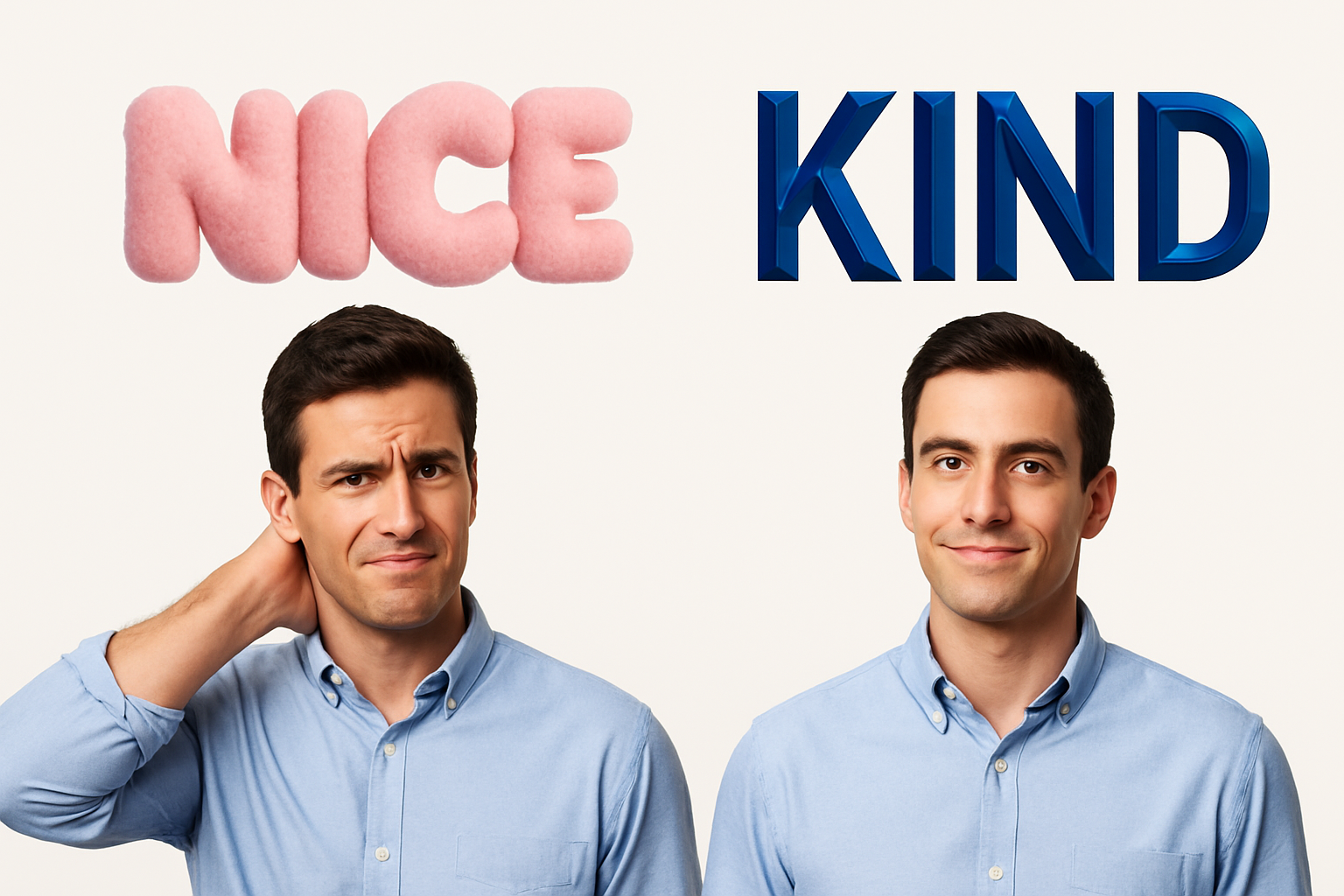The Cost of Nice, the Power of Kind
Nice is a trap. Kind is a catalyst.
At first glance, nice and kind sound like synonyms. But when coaching a team through execution, they couldn’t be further apart.
Kind is truth, delivered with respect.
Kindness gives people what they need to move forward, even if it stings in the moment.
Nice is comfort, delivered at the expense of clarity.
Niceness smooths things over, avoids tension, and makes you feel better for being supportive while leaving the other person without the truth they need.
That difference matters. Because in execution, clarity is oxygen.
When coaching your team, niceness is like carbon monoxide: odorless, easy to miss, but slowly suffocating execution. “I know you’ve had a lot going on that may be causing some issues with deadlines. I’m confident you’ll get it sorted. I believe in you.” It sounds supportive, but it doesn’t address issues that might ultimately lead to failure. Kindness is: “You’re behind on the goals we set. I know you’re capable of more. Let’s figure out what’s blocking you.” Harder in the moment, but far more valuable in the long run.
The same applies with peers. A colleague proposes an initiative that would swamp the team. Nice is: “Sounds good, let’s give it a shot.” Smooth on the surface, but guaranteed frustration later. Kind is: “I get why this matters, but our current load makes it impossible as-is. How do we reshape it so it actually gets done?” That’s collaboration rooted in reality.
And when your boss sets an unrealistic target, the nice move is to nod and say, “Got it.” It feels safe, keeps the meeting smooth, and spares you the awkwardness of pushback. But it does nothing to protect the business. The kind move is: “For us to hit that number, here’s what would have to be true. Here’s where I see gaps. Can we solve them together?” That’s not rebellion. That’s respect—and it’s useful.
Execution is fragile. It depends on alignment, trust, and progress. Niceness muddies all three. It creates false agreement, delays decisions, and erodes credibility. Kindness clears the air. It tells people that what’s said in the room is real outside it. It shows respect, not just for the person, but for the work.
Kind doesn’t mean harsh. Delivery matters. Respect matters. But if your words never risk discomfort, you’re not serving execution—you’re protecting yourself.
So before you sugarcoat, ask: Am I saying this to help them, or to spare me?

